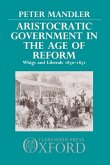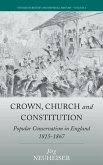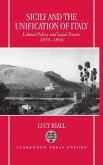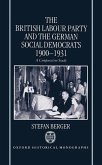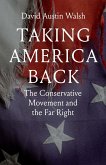This study of English political thought in the eighteenth and nineteenth centuries is organized around the concept of a Whig tradition. Professor Burrow argues that the study of nineteenth-century liberal thought has taken insufficient account of its eighteenth-century antecedents. The work of modern scholars on eighteenth-century themes, especially the civic humanist tradition and the Scottish Enlightenment, is drawn on as a preamble to considering the central ideas of Liberalism. The book traces how the concept changed between the early eighteenth and the late nineteenth century, and examines the main points of continuity, analogy, and difference in the progress of society, public opinion, individuality, and the idea of balance. A concluding chapter looks at the early twentieth century.
This is an analysis of English political thought in the 18th and 19th centuries, organized around the concept of a Whig tradition. Arguing that the study of 19th-century liberal thought has taken too little account of its 18th-century antecedents, Burrow considers the central ideas of Liberalism and how they evolved from the early 18th to the late 19th century, and examines the main points of continuity, analogy, and difference in the progress of society, public opinion, individuality, and the idea of balance. A concluding chapter looks at the early 20th century.
This is an analysis of English political thought in the 18th and 19th centuries, organized around the concept of a Whig tradition. Arguing that the study of 19th-century liberal thought has taken too little account of its 18th-century antecedents, Burrow considers the central ideas of Liberalism and how they evolved from the early 18th to the late 19th century, and examines the main points of continuity, analogy, and difference in the progress of society, public opinion, individuality, and the idea of balance. A concluding chapter looks at the early 20th century.


